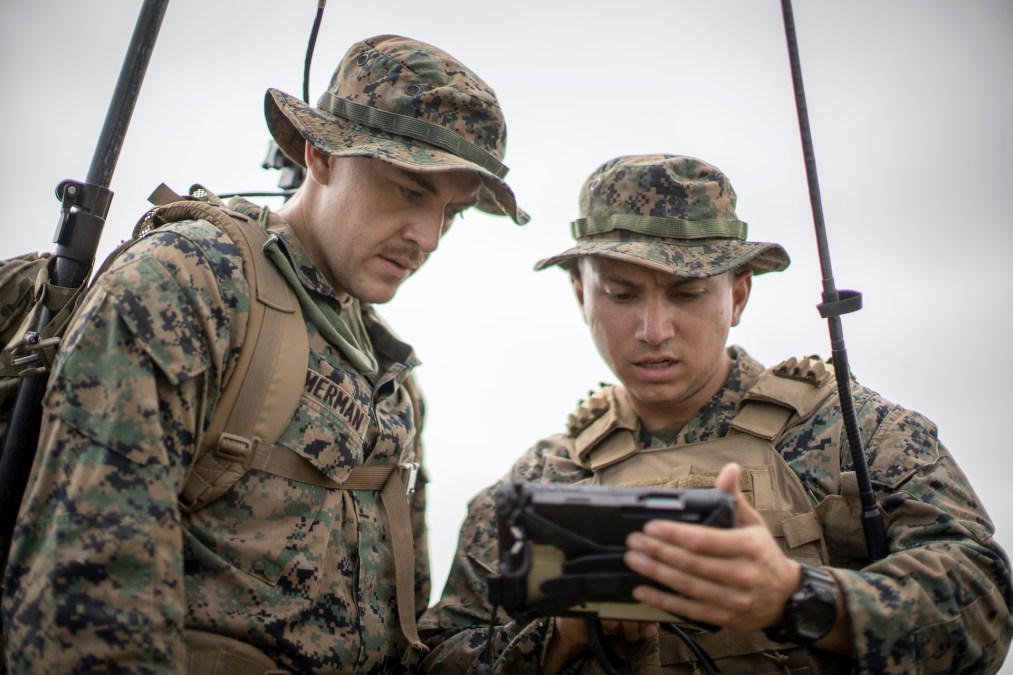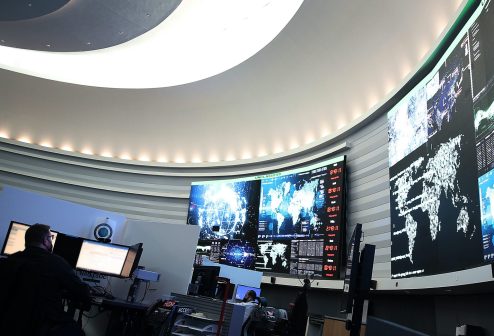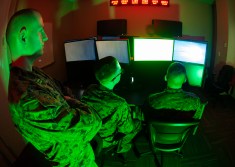Marine Corps officially activates new Marine Corps Information Command

The Marine Corps on Friday officially activated its newest command to synchronize and integrate information capabilities with traditional military operations.
The Marine Corps Information Command (MCIC) is designed to more tightly link the service’s information forces – including cyber, intelligence and space – in theater with the broader joint force across the globe.
In a ceremony at Fort Meade, the Marine Corps activated the command, which will be led by Maj. Gen. Ryan Heritage, the commander of Marine Corps Forces Cyberspace Command and Marine Corps Forces Space Command.
“A single commander who can leverage the authorities and approvals needed to synchronize global cyber, space, influence and intelligence effects creates unity of support for the [fleet marine force] and generates information advantages in support of commander’s objectives,” Heritage said, according to a press release.
As the so-called stand-in force — meaning Marines are constantly deployed forward to be close to adversaries — the Corps believes it can serve as the “eyes and ears” for the joint force in the information space.
“The activation of the MCIC is all about warfighting, integration and enabling the joint force to meet our national security objectives,” said Lt. Gen. Brian Cavanaugh, the commanding general of Marine Corps Forces Command.
The idea for the new command was first articulated by Marine Corps Commandant Gen. David Berger in his annual update to Force Design 2030 last year.
The forces it will work with will be what’s known as service retained, in contrast with forces the Marine Corps presents to U.S. Cyber Command for joint operations. The MCIC will coordinate Marine Corps-specific forces and capabilities on behalf of all joint combatant commanders.
The need for such an integrator stems from not only the increased need for information forces against sophisticated adversaries, but the sometimes complicated authorities involved.
“If you’re not touching, integrating, intimate in those authorities, you’ll be left out. The idea of this MCIC is … taking advantage of all that in order to provide the depth and breadth to be this enabler of the joint force out on the edge based on where we are living in the weapons engagement zone,” Lt. Gen. Matthew Glavy, deputy commandant for information, said last year. “If you’re not where those authorities are — like space, like cyber, like the intel community … if you’re not there you’re probably going to be hard-pressed to get there.”
The MCIC will act as the linkage across commands that conduct operational level planning and will enable commanders to provide task-organized detachments authorities across the range of military operations and in support of campaigning objectives, the Marine Corps said.






